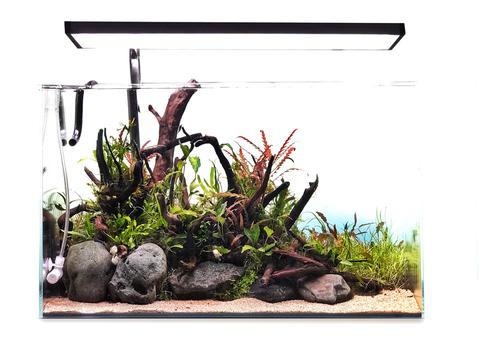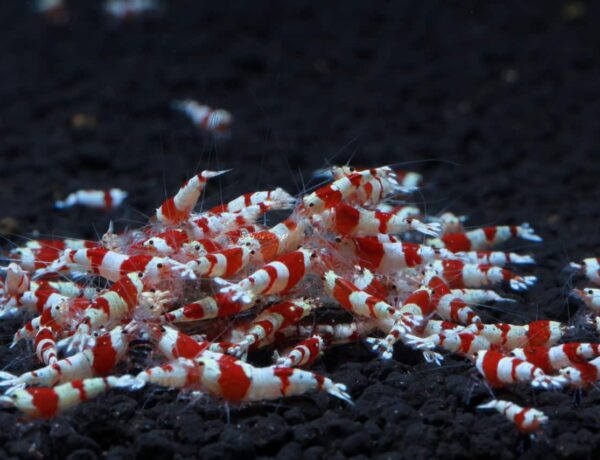Table of Contents
Driftwood Hardscapes
If you’re thinking about adding driftwood into your aquarium, consider these very important steps to ensure the piece of wood will not leach anything harmful into your tank.
Cleaning Driftwood
Once you purchase your driftwood pieces, it’s always good to give them a nice cleaning to make sure there isn’t any loose debris or dirt. Use a scrub brush with warm water on the wood WITHOUT any chemicals or cleaners. After it’s all scrubbed, it’s time to plan where they will be placed in the aquarium.
Plan Ahead
Even before you think about placing driftwood into your tank, you should sketch out or plan where you are going to place it inside your aquarium. One piece might not be so hard, but adding multiple pieces that are inter-woven with each other can take some planning and stability checks. If your aquarium is already filled and stocked with shrimp and/or fish, use a cardboard cut-out of the same dimensions of your tank to get a general idea of how it will all fit and how stable it is.
Stability
If your driftwood pieces are very unstable, then once you find your right angles of how you want your aquascape to look like, you can level off the bottoms by cutting each with a saw. If that is too permanent, you can always glue your driftwood pieces to a base block of wood and then cover it with substrate (creating stability). You can also zip tie them to plastic egg crate grids, providing a rigid base.
Curing Driftwood
Even though most wood will submerge underwater, some types of driftwood will be buoyant and can cause problems when settling into the aquascape. Soaking your driftwood pieces in a large bucket of RO or dechlorinated water for a minimum duration of 1-2 weeks is recommended to allow the wood to become totally “waterlogged” and remove any tannins.
Check Ups
Always check up on your soaking driftwood every day to see if the water is saturated with tannins. If so, replace 100% of the water with new RO or dechlorinated water and rinse your pieces off quickly. Once you start to see the water showing minimal tannins, it’s ready for your aquarium.


No Comments